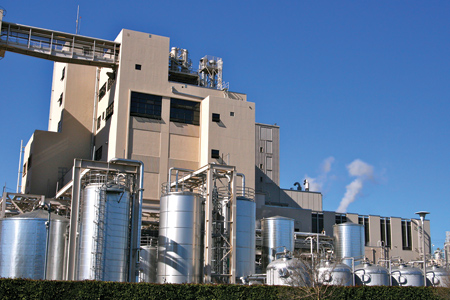
Aggreko's hydronic heating system offers a fuel efficiency and reliable heating option for manufacturing plants this winter.
Do you have a plan in place for heating should your plant experience an unplanned or scheduled outage? Is there a plan to minimize loss of productivity should the boiler go down? What kind of heating equipment will get you back up and running safely and effectively?
Following are seven questions to ask to ensure heating systems stay steady in colder weather conditions.
How Do We Distribute Heat Effectively?
If a traditional indirect heater is set up in just one part of the plant, it is tricky to circulate heat evenly throughout the entire plant.
A better option is to use a hydronic heater, which allows users to create a few distribution points all around a manufacturing facility. It can be scaled up or down based on the needs of the area, and ensures that the temperature remains the same throughout the plant.
Are There Energy-Efficient Ways of Heating?
The most efficient way to transfer heat is via fluid heat transfer, which reduces overall fuel consumption. Conventional methods of temporary heating typically call for indirect air or direct-fired open-flame heaters. However, these methods are inefficient because they must heat outside air. Reheating warm ambient interior air instead, such as with hydronic heating, allows for substantial fuel savings, since hydronic heating systems attain a fuel efficiency of roughly 83%.
Additionally, these systems are designed to vent directly to the atmosphere, as opposed to other systems that vent right into the work environment. Venting directly to the atmosphere eliminates the need for ventilation of noxious fumes.
What if the Boiler is Down?
There is an easy way to avert this circumstance by using a boiler-bypass heating system or hydronic heating system. Hydronic heating systems provide a cost-effective way to heat water (either potable or non-potable) over a temporary period. Users can bring hydronic heating systems onto the site quickly in an emergency, or incorporate them as a backup into a scheduled maintenance plan to ensure ongoing operations.
Additionally, a boiler-bypass system used alongside a plate exchanger allows the site to tap into the facility's water system directly, which further saves time.
How Do We Prevent Mold?
Direct-fired open-flame heaters can warm areas effectively, but they also discharge large amounts of water. Moisture can damage product and equipment while creating the perfect conditions for mildew and mold in the plant. An excellent way to prevent against this is to opt for a hydronic heating system because the system strips out airborne moisture by distributing clean, warm, dry air.
What About Ventilation?
Ventilation is an integral part of worker safety, but unfortunately many temporary heaters vent directly into the work environment. That is why it is critical to find a vendor with heating systems available to vent into the atmosphere and do not require extra ventilation equipment for noxious gas for a safer work environment.
Is Temporary Heating Dependable?
Yes, but one must work with a reputable vendor and plan accordingly. Of course, no matter how great the technology, there is always a chance something unexpected could happen. Choose a vendor that also monitors heating conditions and performance remotely to keep an eye on any issues and to respond 24/7 if temperatures change.
How Do I Keep Production Steady?
It is entirely possible to switch to a temporary heating solution with little or no downtime.
Boiler-bypass systems are a great option on short notice because they do not incur extra compliance work to get up and running. On the other hand, facilities using a boiler-based heating system will need certification tickets and a third-party-certified boiler technician on hand, which slows down the process.
When having a maintenance shutdown or turnaround scheduled in advance, it is a good idea to speak to a temporary heating specialist who can visit the facility and develop a plan of action. The vendor can then have the necessary temporary heating system and any other equipment handy and ready for a smooth transition.
Even without an impending planned shutdown, it is an excellent idea to bring in an expert to handle any unexpected problems.
Authored by Eric Alderson, Temperature Control Product Manager, and Nick Marr, Northeast Region Sales Manager, Aggreko
For more information contact:
Aggreko
627 Grigsby Way
Cedar Hill, TX 75104
800-AGGREKO
www.aggreko.com